Chapter 10 – Sections & Objectives
- 10.1 Device Discovery
- Use discovery protocols to map a network topology.
- 10.2 Device Management
- Configure NTP and Syslog in a small to medium-sized business network
- 10.3 Device Maintenance
- Maintain router and switch configuration and IOS files.
10.1 Device Discovery
Device Discovery with CDP
• CDP Overview
° Cisco Discovery Protocol
° Neighbor discovery of physically connected Cisco devices
• Configure and Verify CDP
show cdp neighbors show cdp interface cdp run cdp enable
• Discover Devices Using CDP
° Device identifiers – The host name of the neighbor device
° Port identifier – The name of the local and remote port
° Capabilities list – Whether the device is a router or a switch
° Platform – The hardware platform of the device

Device Discovery with LLDP
• LLDP Overview
° A vendor neutral layer 2 neighbor discovery protocol, similar to CDP
• Configure and Verify LLDP
show lldp lldp run lldp transmit lldp receive
• Discover Devices Using LLDP
show lldp neighbors

10.2 Device Management
Implement NTP
• Setting the System Clock
° Manually configure the date and time
° Configure Network Time Protocol (NTP)
• NTP Operation
° Hierarchical system of time sources
° Stratum 0 – Authoritative time source
° Stratum number indicates how far the server is from the time source
• Configure and Verify NTP
ntp server ip-address show ntp associations show ntp status show clock


Syslog Operation
- Introduction to Syslog
- Allows devices to send their messages to syslog server
- Supported by most networking devices
- Primary functions:
- log information
- select the type
- specify the destinations
- Syslog Message Format
- Severity level from 0 – 7
- Facility – service identifiers
- Service Timestamp
Enhances real-time debugging and management
service timestamps log datetime
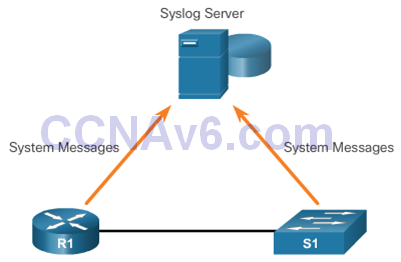
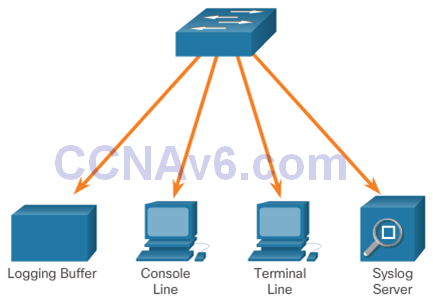
Syslog Configuration
• Syslog Server
° Parses the output and places the messages into pre-defined columns
° Timestamps are displayed if configured on networking devices that generated the log messages
° Allows the network administrators to navigate the large amount of data compiled on a syslog server.
• Default Logging
° Send log messages of all severity level to the console
show logging
• Router and Switch Commands for Syslog Clients
logging ip-address logging trap level logging source-interface source-interface interface-number
• Verifying Syslog
show logging
Use the pipe (|) to limit the amount of displayed log messages
10.3 Device Maintenance
Router and Switch File Maintenance
- Router and Switch File Systems
- show file systems – lists all available file system
- dir – lists the content of the file system
- pwd – verify the present working directory
- cd – changes the current directory
- Backing up and Restoring using Text Files
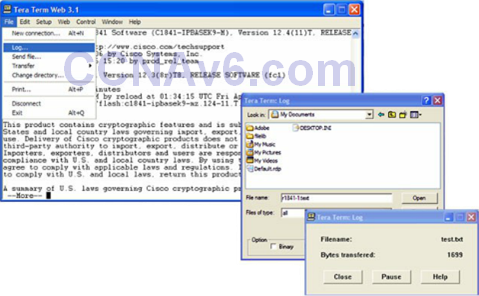
• Backing up and Restoring using TFTP
copy running-config tftp copy startup-config tftp
• Using USB Ports for Backing Up and Restoring
show file systems dir usbflash0: copy run usbflash0:/
• Password Recovery
° Enter ROMMON mode
° Change configuration register to 0x2142
° Make changes to the original startup config
° Save the new configuration
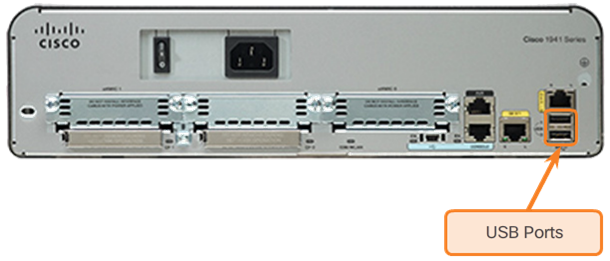
IOS System Files
• IOS 15 System Image Packaging
° universalk9 images
° universalk9_npe images
° Technology packages: IP Base, Data, UC, SEC
° Data, UC, and SEC technology packages are activated through licensing
• IOS Image Filenames
° Feature sets and version
show flash
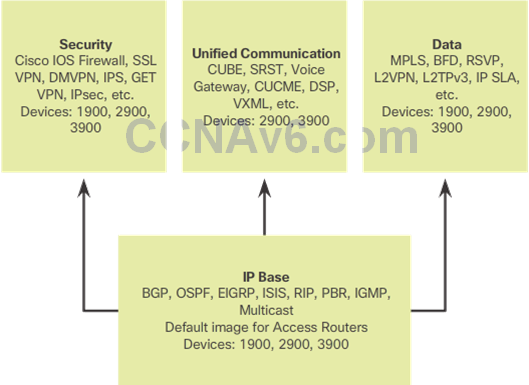
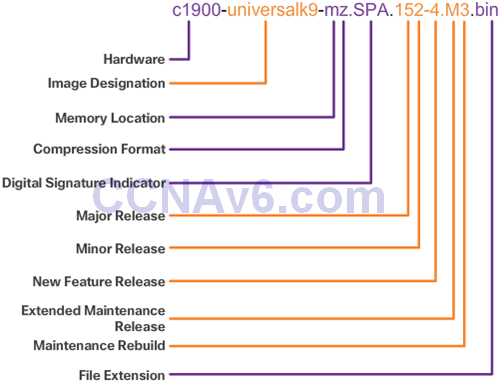
IOS Image Management
• TFTP Servers as a Backup Location
° Backup location for IOS images and configuration files
• Steps to Backup IOS Image to TFTP Server
° Verify access to TFTP server
° Verify sufficient disk space
° Copy the image to the TFTP server
copy source-url tftp:
• Steps to Copy an IOS Image to a Device
° Download IOS image from Cisco.com and transfer it to TFTP server
° Verify access to TFTP server from device
° Verify sufficient disk space on device
° Copy the image from the TFTP server
copy tftp: destination-url
• The boot system Command
° Command to load the new image during bootup
boot system file-url
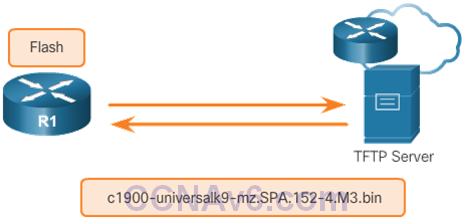
Software Licensing
• Licensing Process
° Purchase the software package or feature to install
° Obtain a license
Cisco License Manger
Cisco License Portal
Requires PAK number and UDI
show license udi
° Install the license
license install stored-location-url reload
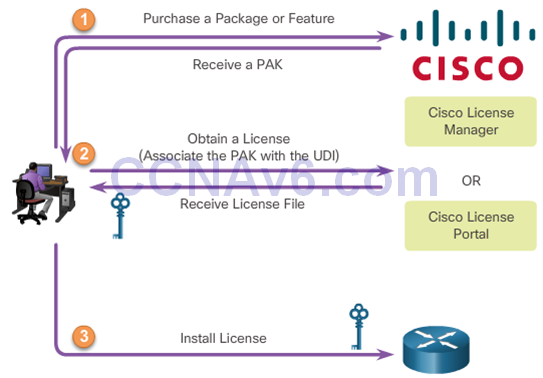
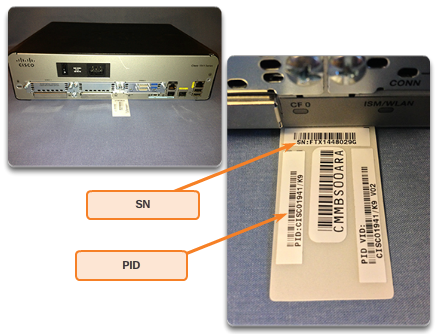
License Verification and Management
• License verification
show version show license
• Activate an evaluation right-to-use license
license accept end user agreement license boot module module-name technology-package package-name
• Back up the license
license save file-sys://lic-location
• Uninstall the license
° Disable the license
license boot module module-name technology-package package-name disable
° Clear the license
license clear feature-name no license boot module module-name technology-package package-name disable

10.4 Chapter Summary
- CDP is a Cisco proprietary protocol for network discovery on the data link layer. It can share information, such as device names and IOS versions, with other physically connected Cisco devices.
- LLDP is vendor-neutral protocol used on the data link layer for network discovery. The network devices advertise information, such as their identities and capabilities, to their neighbors.
- NTP synchronizes the time of day among a set of distributed time servers and clients. This allows networking devices to agree on the time a specific event occurred, such as the loss of connectivity between a router and a switch.
- Syslog messages can be trapped and sent to a syslog server where the network administrator can investigate when the link failed.
- Device maintenance includes the tasks of backing up, restoring, and upgrading IOS images and configuration files from an TFTP server or using USB storage devices.
- Upgrading an IOS image also includes tasks related to software licensing.
- Understanding IOS image name conventions can be useful in the determination of included IOS feature sets.
Download Slide PowerPoint (pptx):
